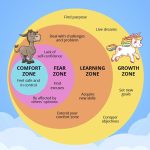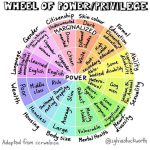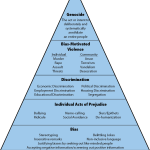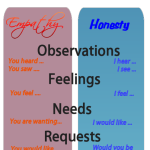Reflection to Action
We do not always know what other people go through or what their stories are. With a finite amount of time in our work and policies and structures we work within, it can be tough to connect with others in the way they prefer…and we may not realize the impact, positive or harmful, that we had.
Heather provides a 3-session training that will assist in reflecting on ourselves, our environments, and our systems to help us all see through different lenses, acknowledge differences, have open dialogue about how to create change in the work environment, and start action toward creating a place where all feel they belong.

Learning Zone Model
This is a well known theory that most of us operate in our comfort zone. Real success comes from exploring our fear and learning zones to reach our growth zone. All movement towards growth expands our comfort zone. thus, We become more aware and comfortable with relationships, situations, and issues that used to be more difficult. Keep trying!
Our system is built on dominant culture from which most of the power comes from the individuals in leadership who hold more privilege. Every person has privilege and many people are marginalized in many aspects of our lives. Look at where you hold privilege and power, and where you do not. Think about where others hold privilege and power and where they do not. The responsibility of having privilege is to use the power that comes with it wisely and inclusively.
When we start by acknowledging our biases, we start to crumble the foundation that can lead to prejudice, discrimination, and hate. Beginning with our own self reflection allows us to better see what others experience in our policy, systems, and environments so we can make change.
The Nonviolent Communication Model
Nonviolent communication starts with acknowledging our own feelings and needs as well as others’ feelings and needs. Instead of building a bridge, digging down to the foundation of our feelings or values provides a true connection so we can understand and learn from each other. NVC helps in trauma informed and responsive care as well as when we work with people different than us or move toward inclusion and reducing oppression.
If you would like to more information, have questions or would like to schedule a training session please contact Heather Quackenboss at 608-785-9593 or heather.quackenboss@wisc.edu






